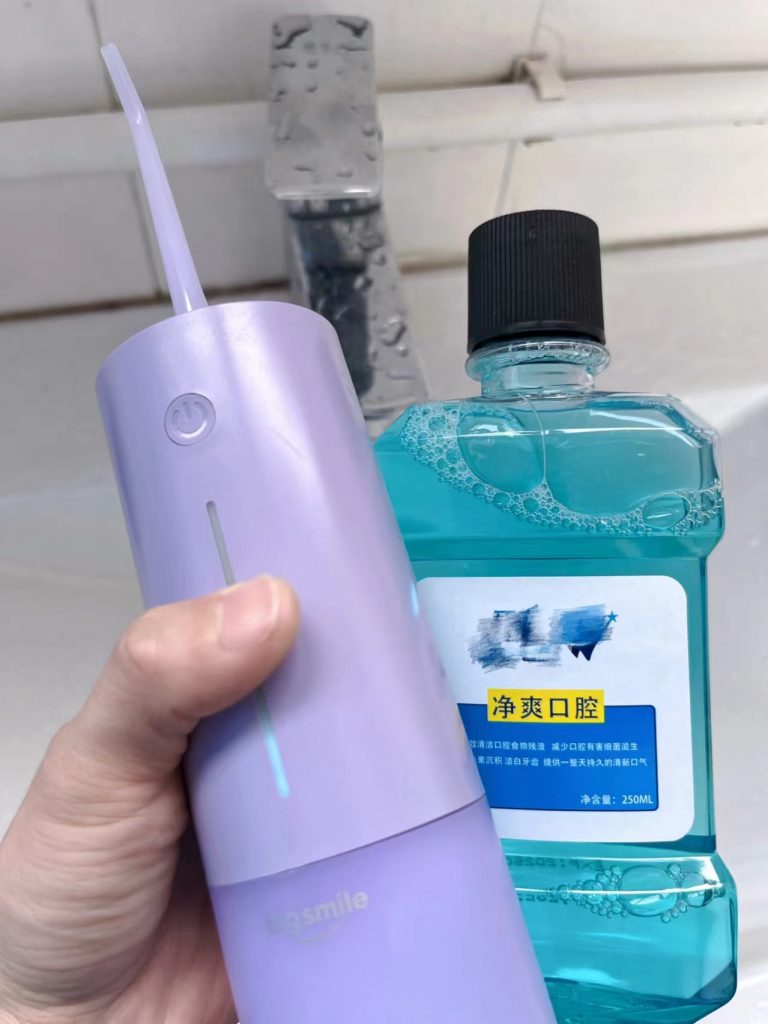Since the tooth extraction.
Xiaojie has been troubled by sensitive teeth.
The summer of 2024 is approaching.
It’s the season when cold drinks can be seen but not eaten again.
Old fire is fierce~
Is there no way to improve tooth sensitivity?
1、 Why are teeth sensitive?
Tooth sensitivity is related to gum recession.
Healthy teeth have a layer of enamel that can protect the crown, located above the gum line. There is a layer of material called cementum below the gum line that protects the tooth roots, and beneath the enamel and cementum is dentin.
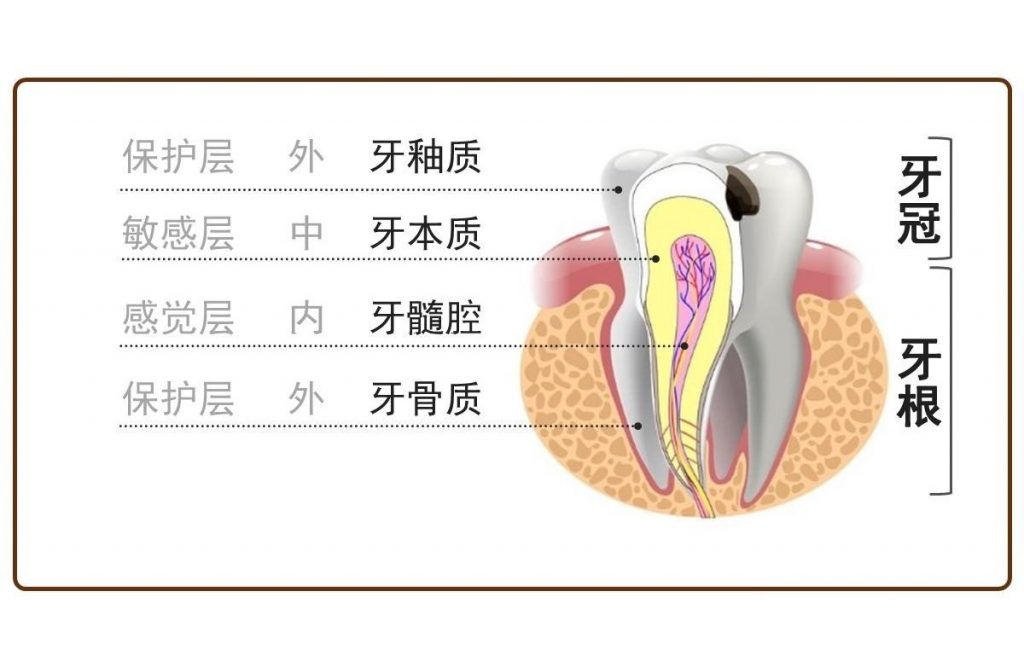
Gingival recession can cause damage to the cementum below the gums, leading to exposure of dentin. There are thousands of thin tubes leading to the nerve center of the teeth – the pulp. These fine tubes can transmit cold, hot, sour, and sweet stimuli to the pulp, causing tooth soreness and even pain.
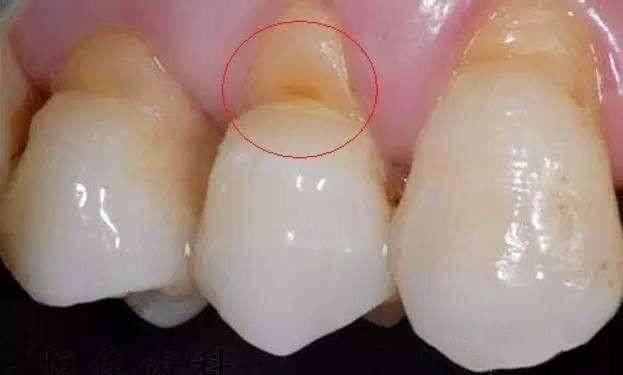
In daily life, many people experience gum recession due to various reasons, which in turn leads to tooth sensitivity. Research has shown that in recent years, more and more people in their 20s and 30s are suffering from symptoms of tooth sensitivity. However, many people do not pay much attention to tooth sensitivity at the beginning until it becomes severe enough to cause toothache at the slightest cold, hot, sour, or sweet taste.
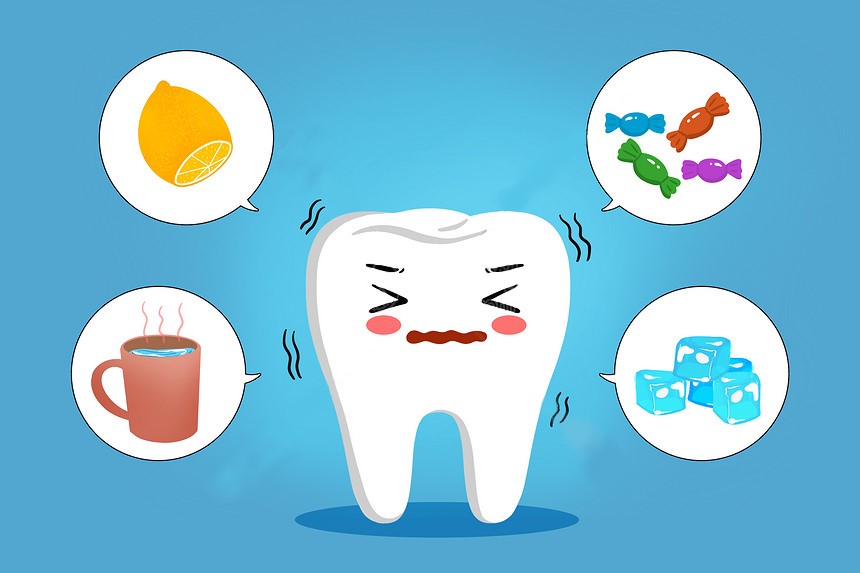
Being in a state of tooth sensitivity for a long time not only affects personal life, but also affects personal health. Tooth pain caused by sensitive teeth can lead to difficulty chewing and swallowing, which not only increases the burden on the digestive system, but can also lead to digestive problems such as bloating and excessive stomach acid. In addition, picky eating behavior caused by tooth sensitivity can also affect mood and may lead to uneven nutrient intake, affecting overall and mental health?
2、 How to improve tooth sensitivity?
01 Use a soft bristled toothbrush.
When cleaning around the gum line, the force must be gentle to avoid damaging the gums again and accelerate the rate of gum recession.
02 Using anti allergic toothpaste
Regular and qualified anti allergic toothpaste can reduce tooth sensitivity and effectively improve tooth allergies.
03 Using fluorinated care products
Daily use of fluoride care products, such as fluoride toothpaste, fluoride oral cleansers, etc., can effectively reduce tooth sensitivity. If you are not familiar with fluorine-containing care products, you can also consult a dentist while visiting your teeth.
It is recommended that people with sensitive teeth use their fingers or cotton swabs to apply a thin layer of fluoride toothpaste to the exposed area of the tooth root before going to bed. This can help improve tooth sensitivity issues while sleeping.
04 Maintain good lifestyle habits.
For example, pay attention to diet and avoid eating foods and drinks rich in acidic substances; Avoid grinding teeth to prevent tooth damage and exposure of dentin.
05 Use a dental punch for comprehensive cleaning
Properly and regularly use mouthwash, floss, or water folsser to thoroughly clean the oral cavity.
During the sensitive period of teeth, the more sensitive the teeth are, the more comprehensive oral cleaning is needed, and more attention should be paid to gentleness during cleaning. In terms of comprehensive cleaning, compared to dental floss, the efficiency and portability of the water flosser are more popular among the public. For example, this JIEYANG bigsmile water flosser can perform a comprehensive and efficient oral SPA in 2 minutes by selecting the soft mode of its three modes first, and then sliding your finger to adjust the gear to a particularly gentle minimum.
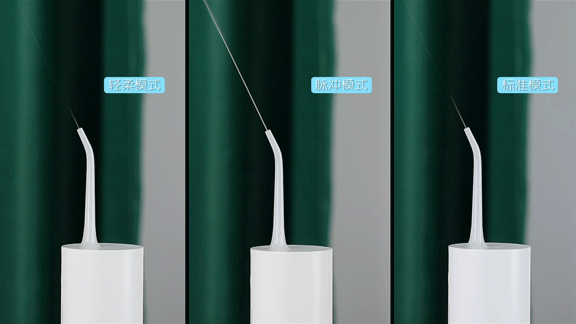
Of course, the more sensitive the teeth are, the more attention should be paid to gentleness. Therefore, it is recommended to use warm water as much as possible when flushing teeth, as too hot or too cold can cause irritation to sensitive teeth.
-1.gif)
In addition, it is recommended that when using a water flosser for comprehensive oral cleaning, it should be paired with mouthwash. The ingredients of mouthwash can reduce bacteria and make your deep cleaning more efficient……
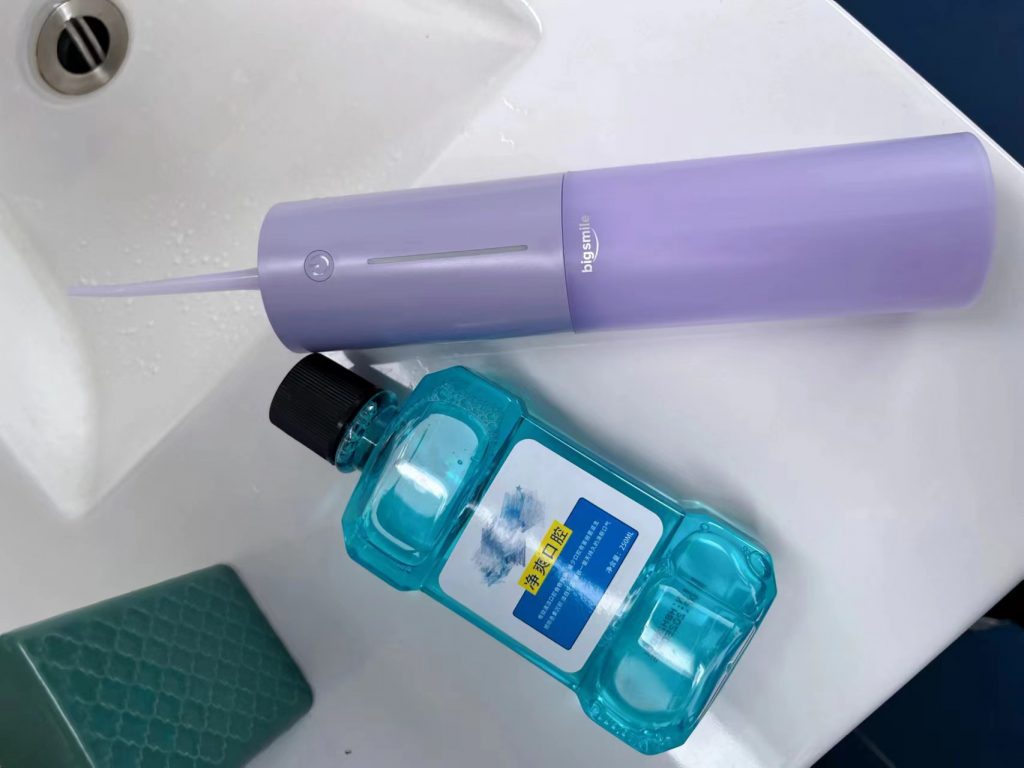
If gum recession is severe, using a water flosser can cause bleeding, which is also normal. However, the water flow with appropriate force from the water flosser has the effect of massaging the gums, and after a period of time, there will be no bleeding. As for those who have just completed the surgery, they can wait for the wound to heal before using it or follow the doctor’s advice on whether to use a water flosser appropriately.
PS: If teeth are highly sensitive and the self improvement effect is weak, you should consult a dentist. Dentists may recommend covering the exposed root surface with white fillers, fluorinated coatings, or dental sealants.

Finally, I would like to say that it’s not that the teeth cannot be filled, but that the toothbrush is more cost-effective. Whether it’s mild tooth sensitivity or severe gum sensitivity, please remember to use this combination daily: brushing teeth, water flosser , and mouthwash for comprehensive oral cleaning~
